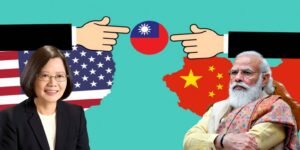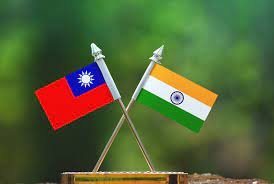Taiwan’s ruling party, the Democratic Progressive Party (DPP), won the presidential election on January 13 of this year with candidate Lai Ching-te. He ran for office against Ko Wen-je of the Taiwan People’s Party (TPP) and Hou Yu-ih of the Kuomintang (KMT).
Lai received forty percent of the total votes, compared to fifty-seven percent for the previous president of the same party. In contrast to 2020, when the total proportion of votes was 75%, it was 72% this time.
With dominance over the unicameral Legislative Yuan and the presidency, the Democratic Progressive Party (DPP) has won three straight presidential elections, demonstrating the party’s dominant position in Taiwanese politics. China, which asserts Taiwan as part of its territory, issued warnings, but Lai prevailed because the electorate rejected Beijing’s intimidation.
Taiwans’ Policy under Lai
Lai declared that he is “determined to safeguard its nation from threats and intimidation from China” and that he will uphold the current situation of cross-strait relations.

Simultaneously, he emphasized the need for equal collaboration and dialogue with Beijing in order to “replace confrontation,” although he did not elaborate.
Lai Ching-te’s policy agenda is consistent with the values of his party; it places a strong emphasis on upholding the nation’s sovereignty while also encouraging further peace negotiations with China. He has promised to maintain the current situation while stating that the people of Taiwan are the only ones who should make decisions about its future.
Globally, the ROC has diplomatic ties to a small number of nations, which include, among others, the US, Canada, Japan, Australia, and New Zealand. Taiwan is now recognized as a sovereign nation by just 13 countries.
India-Taiwan Ties
India, which has strong and developing linkages in science, technology, and the economy, seeks to work with Taiwanese companies more closely in order to support Taiwan in overcoming Chinese economic pressure. India has previously received warnings from China last year to avoid military and security cooperation with the Tai nation.
But the DPP saw the beginning of the strengthening of ties between Taiwan and India, which is anticipated to continue. India can also anticipate increasingly forceful warnings from China, requesting that it refrain from engaging with Tai.

Domestically, any foreign policy that is more pro-US will encounter resistance because the Legislative Yuan lacks a definite majority.
For India, the democratic extension of the former President Tsai legacy for four more years affords greater diplomatic room to maneuver for better bilateral relations and more comprehensive trade cooperation.
Although a KMT victory would not have upended the bilateral applecart, it would have surely forced South Block to reevaluate its relationship with a Taiwanese party that had pledged during the campaign to extend an olive branch to China, with which India’s cross-border relations have grown somewhat tense.
Given that the “Cat Warrior” has visited India before, the election of her close friend, Hsiao Bi-khim, as the next vice president is expected to be another element contributing to Taiwan’s rising amity with India. In 2018, one of Hsiao’s roles as the de facto U.S. ambassador was to speak at the Raisina Dialogue in Delhi.
India’s Stance on Tai-China Relations
Since the conclusion of the Cold War, Taiwan has become increasingly important to India due to a combination of political and economic factors, which has increased India’s interest in and contacts with Taiwan.
Unofficial relations with the Tai nation persisted throughout the 1950s and 1960s, despite the fact that India was among the first non-communist nations to recognize the PRC.
Although Taiwan’s total foreign direct investment in India increased slowly at first, totaling $805 million between April 2000 and 2019, there have been a number of significant commitments made in recent years.
Officials in India have recently voiced their opinions as China-India relations have been worse and the situation in China’s near seas and around Taiwan has gotten increasingly tense.
On August 12, 2022, a spokesperson for India’s Ministry of External Affairs voiced alarm about these developments and encouraged moderation and the avoidance of unilateral steps that would change the status quo. Rather, he advocated for a reduction in hostilities and continued attempts to uphold stability and peace.
The South China Sea is now the route for about 55% of India’s trade with the Indo-Pacific region, with the Tai Strait accounting for a significant share of this traffic. India’s growing worry about the escalating tensions in this expanded maritime zone and across the Taiwan Strait makes sense given the growing stakes in the relationship with Taiwan and the stability of the region.
With the deteriorating of India-China ties in the previous decade, there are significant voices in the Indian strategic community asking for a more active Indian political engagement with Taiwan. In 2018, the Parliamentary
Standing Committee on External Affairs discussed how India’s “deferential foreign policy towards China” needed to be reviewed and how, should China be unwilling to change its position on the border and sovereignty, India should “use all options including its relations with Taiwan.”











